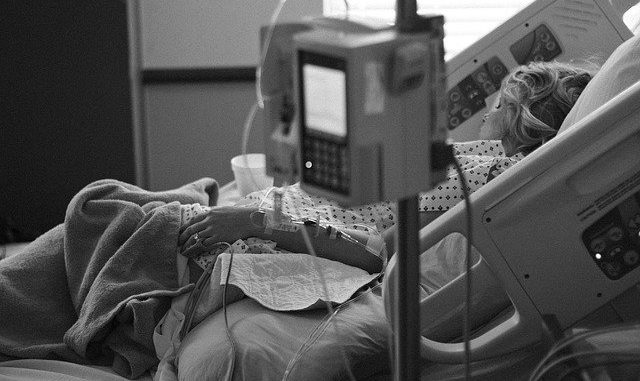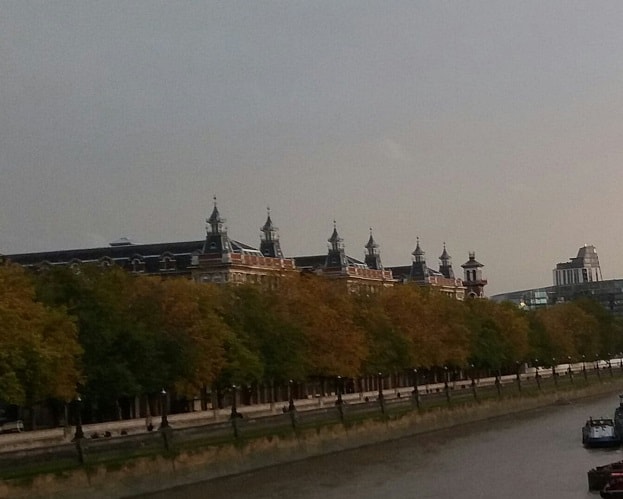
While the Prime Minister was discovering how fantastic our NHS is at its best, I was having flashbacks to the three times I’ve had contact with intensive care units — twice in St Thomas’, where the PM was.
You don’t get used to it but you learn to how to keep a cheerful face when inside you’re reeling with the horror of it.
Intensive care units are scary places, full of people who would die if they weren’t there. And do die there.
I saw a medical student faint as she came away after her first visit. And I saw people die.
My third visit was to an intensive care unit (ICU) was to see my partner, Norman, who was suffering from the complications of a heart attack and open heart surgery – an operation that only carried a 50% chance of survival.
His Thanet heart attack couldn’t be dealt with in Kent – only St Thomas’ had the expertise to save his life.

He was being kept alive with machines that were performing all life functions for him. A tube down his throat was breathing for him, a pump was keeping his blood circulating, tubes into his veins were feeding him drugs, monitors all over him were checking pulse, oxygen levels and temperature. Urine was being collected and measured carefully, as were any fluids going in.
ICUs are full of bleeping machines and enormously skilled staff who can interpret what they mean and how to deal with any crises – with calmness and kindness. Miracles happen and so do tragedies.
You get a nurse to yourself. But those nurses are doing 12 hour shifts, paying close attention to everything that is happening to you, watching other patients while their nurse takes a break and helping out in the endless crises.
I asked one of the nurses when she would get to go home and discovered that she would be in the hospital 13 hours as meal breaks are not included in a shift, and not paid for. And many live miles out of London because their salary cannot stretch to London prices.
When I was visiting, the staff at the unit came from all over the world. Like Boris, Norman’s main doctor was from Italy, and was brilliant —both as a surgeon and a human being.
Norman’s main nurse after the operation was from Canada. Her family had been refugees from Vietnam and now she’d moved again to hone her skills in London. You get quite close to people who have your loved one’s fate literally in their hands.
And you are immensely and overwhelmingly grateful.

But when I was there things were not easy for the nurses. Apart from the long shifts, the canteen didn’t stay open at night. Twelve years before, when I was visiting a friend in a coma, it did. The technology has moved on tremendously but it seems to me that staff working conditions have not.
Now, with the virus on the loose, things must be vastly more complicated as staff have to wear full protective clothing. I know from a speech therapist friend who has to use it to see patients that it’s not easy wearing it for more than a couple of hours. It’s hot and suffocating. Wearing it for 13 hours must be exhausting.
In this crisis hospital staff everywhere are risking their lives in a vicious pandemic where they are on the front line.
It should not take a near death experience as the Prime Minister has just had to see that the caring and medical professions are the ones we should be protecting and nurturing.
Let’s make sure they have the best equipment and working conditions, are so well paid we don’t lose them to other countries, and that they have the respect and gratitude they deserve.

